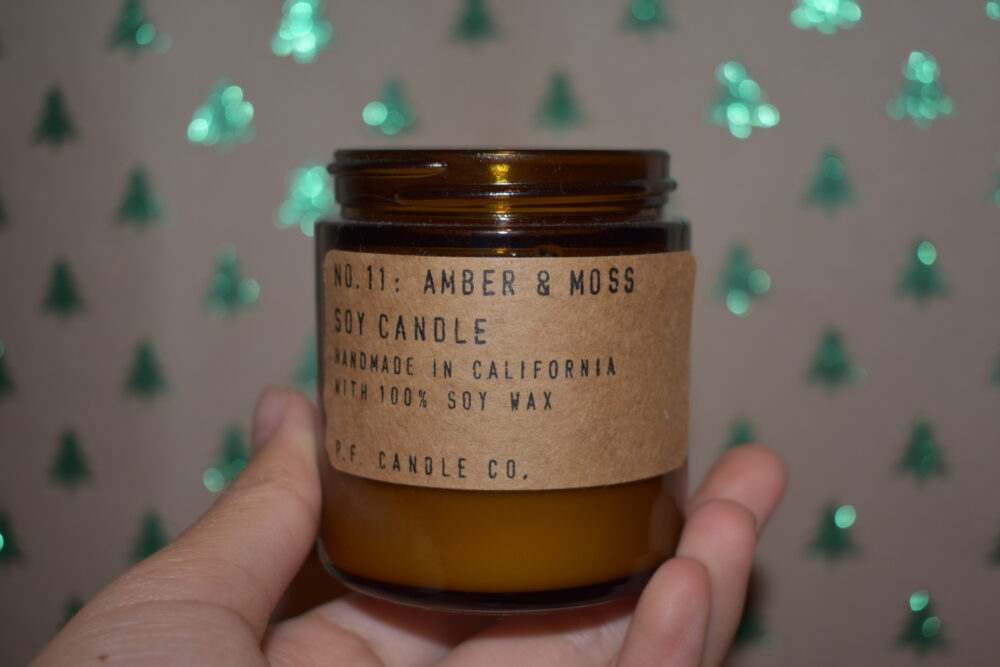
By Alexys DeMaria
As the holiday season approaches, Americans enter the most wasteful time of the year. Americans throw away 25% more trash during the Thanksgiving to New Year’s holiday period than any other time of year, amounting to an extra 25 million tons of garbage. Without sacrificing any holiday cheer, here are ways to reduce your waste during the gifting season.
1. Change your wrapping paper, or even omit it
Wrapping paper is usually used once and then discarded, resulting in a lot of waste. The US alone produces 4.6 million pounds of festive wrapping paper annually, half of which ends up in the nation’s landfills by the year’s end. In order to save some of the 30 million trees used every year, wrap your gifts in something already at your home. Old magazine pages, fabric, baskets and vintage maps are all different alternatives to wrapping paper. You can even forgo any wrapping altogether and reduce any waste.
2. Buy second hand and efficient decorations
Decorations are usually expensive and short-lived and easily found second-hand. In order to save items from landfills and money, consider buying decorations second-hand before new ones. Thrift stores overflow with holiday wreaths, dinnerware and ornaments after festivities end, which means the perfect time to get what you need before next year.
If buying new, make sure to buy energy-efficient and durable decorations, for example, lights. Switching to LED lights uses less energy compared to the standard incandescent bulbs, which saves energy and money. LED Christmas lights also last up to last 10 times longer than traditional lights. They can remain fully lit for more than 40,000 hours and are extremely durable. No need to replace light strings every year!
3. Burn Clean Candles
Whether placing a candle in your window or lighting the menorah, candles are an important part of many holiday celebrations. Though, many conventional candles contain ingredients that are harmful to the environment and your health. Paraffin is a waxy ingredient derived from petroleum. Candles made from the substance are suspected to give off toxic chemicals, like toluene and benzene. Toluene and benzene are known to be carcinogens. For the health of you and your loved ones, choose to burn more naturally derived candles containing soy or beeswax.
4. Take the meat out of your holiday feast
According to the United Nations Food and Agriculture Organization, meat and dairy specifically account for around 14.5% of global greenhouse gas emissions. It also has a large water footprint, with beef being the largest out of any food. It takes around 1,800 gallons of water to produce one pound of boneless beef. That is monumental compared to wheat, which only needs 25 gallons to produce a pound. In order to reduce the consumption of your holiday meals, omit meat from your dishes. Large publications, such as the New York Times and Bon Appetit, have already published many vegetarian holiday recipes, giving you a large library to choose from.
5. Re-think gifting
To curb shipping emissions and to avoid the holiday supply chain shortage, consider buying locally made, environmentally conscious gifts. Look for items made of natural materials that are durable and useful. Locally made also includes DIY gifts, so don’t shy away from baking cookies or sewing something for someone you love. You can also give someone an experience that will create a memory and not waste more. A picnic at a scenic park, gifting a monthly subscription box, or a meal at a restaurant they love could be greatly appreciated with no gift wrap involved.
6. Get a real tree
Not only does it bring a great aroma to your home, real Christmas trees also support forests and help fight climate change. Buying real Christmas trees keeps tree farms in business, who regrow and sustain green areas all year long. After the end of the celebrations, there are many programs that will recycle your Christmas tree into compost, rather than in a landfill like artificial trees. Locally grown real trees are sustainable, biodegradable and festive!
7. Extend holiday generosity to environmental charities
In the spirit of giving, avoid asking for items that you don’t really need, and ask for your loved ones to donate to environmental charities of your choosing. This diverts money that could have been used for nonessential gifts into a lasting change that can affect many other people. Find California environmental charities here, and pick your favorite.





